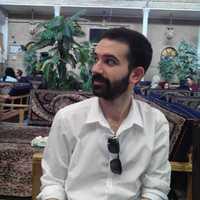Event

Many sources report the almost compulsive tendency of the Mongols to count themselves and the enemies they had just defeated and conquered. This constant numbering had to do with the famous decimal system, of which this lecture proposes a reassesment. The study aims to demontsrate that it was not only a military organization, but a system of general enregimentation of the subject population within nested military-administrative units allowing to ensure the ordering, the control and the mobilization of the subjects of the empire. Although it constituted the core of the Mongol imperial order and arguably reached its peak of sophistication at that time, this presentation will also show that it was certainly not an innovation within the political tradition of the Eurasian steppes.
Simon Berger received his PhD in history in 2022 from the School of Advanced Studies in Social Science (EHESS), Paris. His interests focus primarily on the political and military institutions of the Mongol Empire, on how it inherited a longstanding steppe tradition of government, and on the organization of medieval Eurasian steppe societies in general. He is currently a lecturer at the Institute of Oriental Languages and Civilizations (INaLCO), Paris, where he teaches medieval Mongolian history.